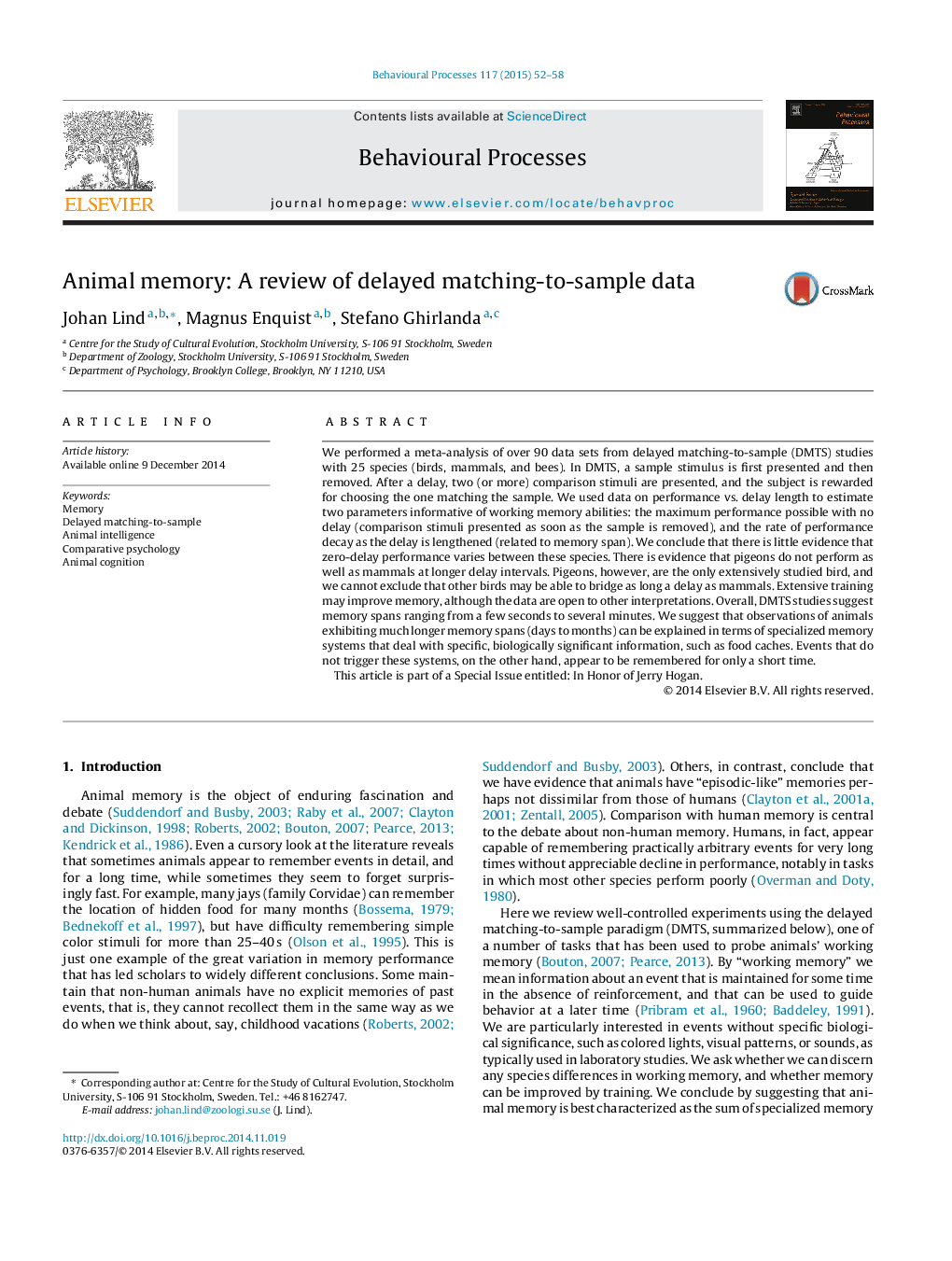| کد مقاله | کد نشریه | سال انتشار | مقاله انگلیسی | نسخه تمام متن |
|---|---|---|---|---|
| 2426554 | 1553163 | 2015 | 7 صفحه PDF | دانلود رایگان |
• We tested animal working memory using meta-analyses on delayed matching-to-sample data.
• Without delays we found no evidence for differences between mammals, birds and bees.
• We cannot exclude that birds match the performance exhibited by mammals.
• Neither monkeys nor apes stand out when it comes to memory performance.
• Animals use specialized and general memory systems for different kinds of information.
We performed a meta-analysis of over 90 data sets from delayed matching-to-sample (DMTS) studies with 25 species (birds, mammals, and bees). In DMTS, a sample stimulus is first presented and then removed. After a delay, two (or more) comparison stimuli are presented, and the subject is rewarded for choosing the one matching the sample. We used data on performance vs. delay length to estimate two parameters informative of working memory abilities: the maximum performance possible with no delay (comparison stimuli presented as soon as the sample is removed), and the rate of performance decay as the delay is lengthened (related to memory span). We conclude that there is little evidence that zero-delay performance varies between these species. There is evidence that pigeons do not perform as well as mammals at longer delay intervals. Pigeons, however, are the only extensively studied bird, and we cannot exclude that other birds may be able to bridge as long a delay as mammals. Extensive training may improve memory, although the data are open to other interpretations. Overall, DMTS studies suggest memory spans ranging from a few seconds to several minutes. We suggest that observations of animals exhibiting much longer memory spans (days to months) can be explained in terms of specialized memory systems that deal with specific, biologically significant information, such as food caches. Events that do not trigger these systems, on the other hand, appear to be remembered for only a short time.This article is part of a Special Issue entitled: In Honor of Jerry Hogan.
Journal: Behavioural Processes - Volume 117, August 2015, Pages 52–58
